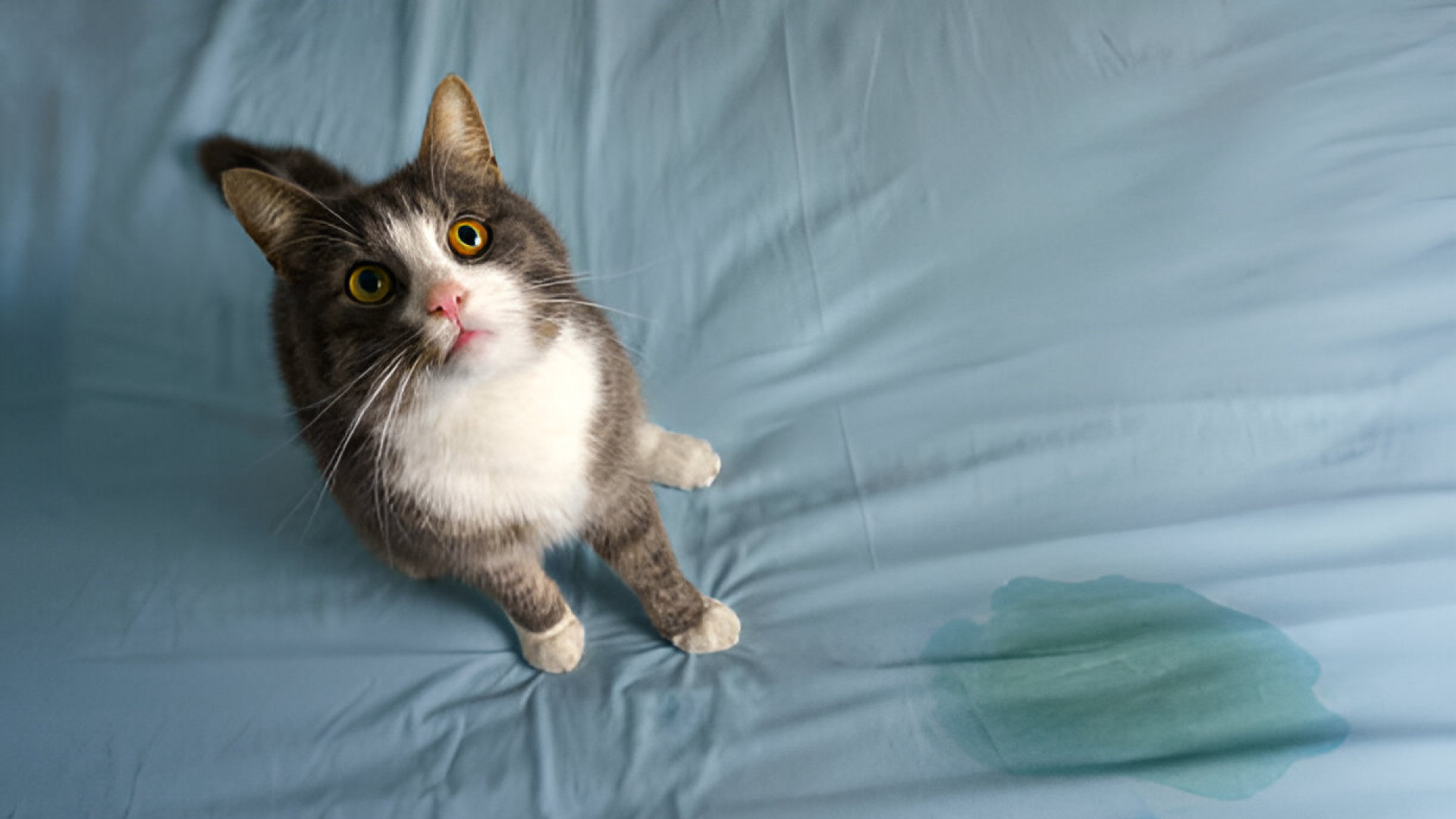Have you ever been with your cat on the couch, and they suddenly urinate on you? You might wonder why they did it. It could be a sign of love, a distress signal, or a strange behavior.
Let’s find out why your cat might urinate on you before jumping to conclusions or reaching for cleaning products.
We will investigate health and emotional factors to uncover the reasons behind this unexpected behavior. This is a common question for cat owners.
If you find the Table of Contents bothersome, you can simply close it by clicking on three dots. However, it can be useful to quickly navigate to a specific section if you’re in a hurry. It is recommended to read the entire article if you truly love pets.
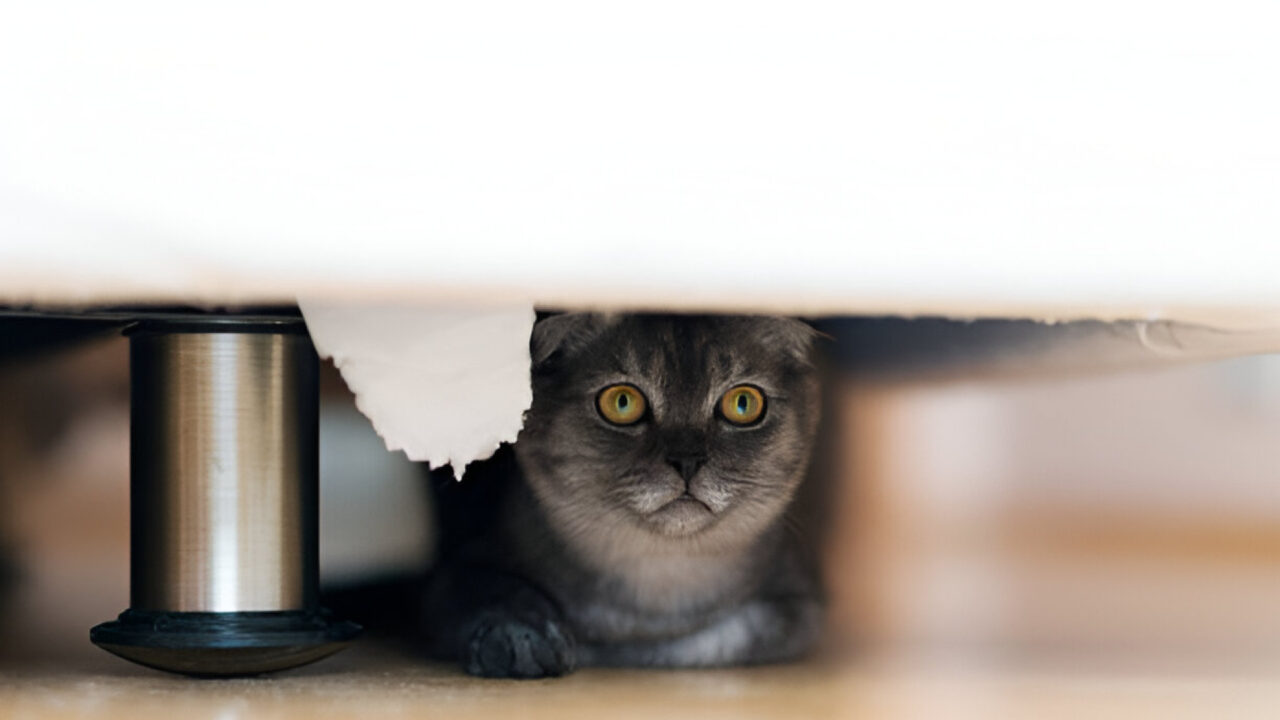
Your cat might be feeling scared.
Various factors such as loud noises, unfamiliar people, environmental changes, past hostility, lack of privacy, or crowded spaces can lead to fear or anxiety in your feline.
When a cat gets scared, it has a natural reaction called the ‘fight or flight’ response. A common issue in this situation is loss of bladder control, which can result in unexpected urination on yourself.
Cats may react to fear by urinating to relieve anxiety and be ready to escape quickly if necessary.
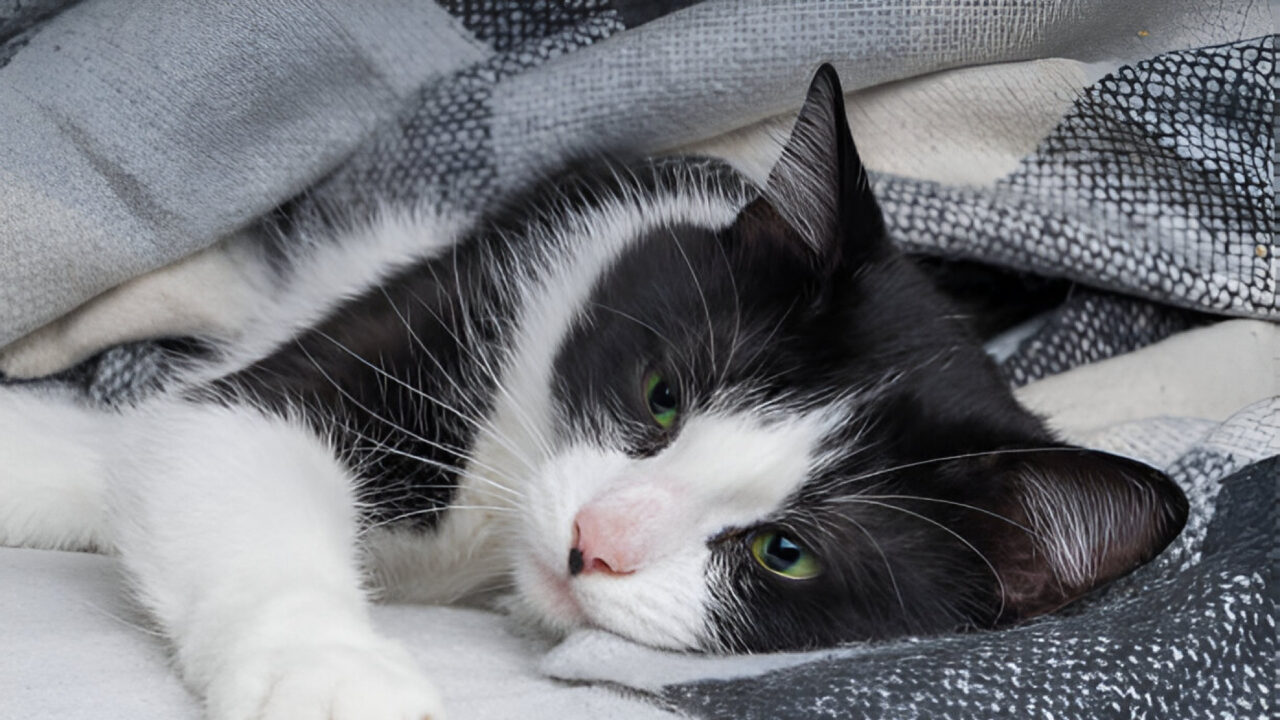
Your cat does not feel well.
Because of medical conditions affecting bladder control
Like humans, kitty also experience fatigue and discomfort when their bodies do not function correctly.
Possible health problems that can cause feline distress include urinary tract infections (UTIs), bladder stones or crystals, and kidney disease.
Because of gastrointestinal problems
Cats experiencing digestive problems such as constipation or diarrhea may feel discomfort or pressure in their stomach area.
Occasionally, this can prevent them from managing their bladder function. If your feline is sitting on your lap when this happens, it may urinate on you.
Because of Lethargy and weakness
When we’re unwell, we often feel drained and sluggish, efficiently. Likewise, a sick kitty may feel too feeble or lazy to rise and use the litter box.
Suppose they lack the energy to move around and lose bladder control. In that case, they may end up urinating in undesirable places, such as on your lap.
Because of Confusion and Cognitive Dysfunction
Suppose your tom is older and showing signs of cognitive decline. In that case, it might pee on your lap simply because it is confused and disoriented.
Because of medication side effects
When your pet is unwell, it can lead to distress, and specific treatments may have unintended consequences, such as increased urination or loss of bladder control.
If your cat receives medication, it may contribute to occasional accidents, such as urinating on your body or lap.
Because of the lack of vocalization
Just like we, as children, depend on our parents to satisfy our needs, cats rely heavily on vocal cues to communicate their needs to us.
However, when a kitty is struggling with illness, weakness, and pain, it can be challenging for it to express its needs clearly.
This can cause accidents, like peeing on their owner’s lap, because they can’t communicate their need to go to the litter box.
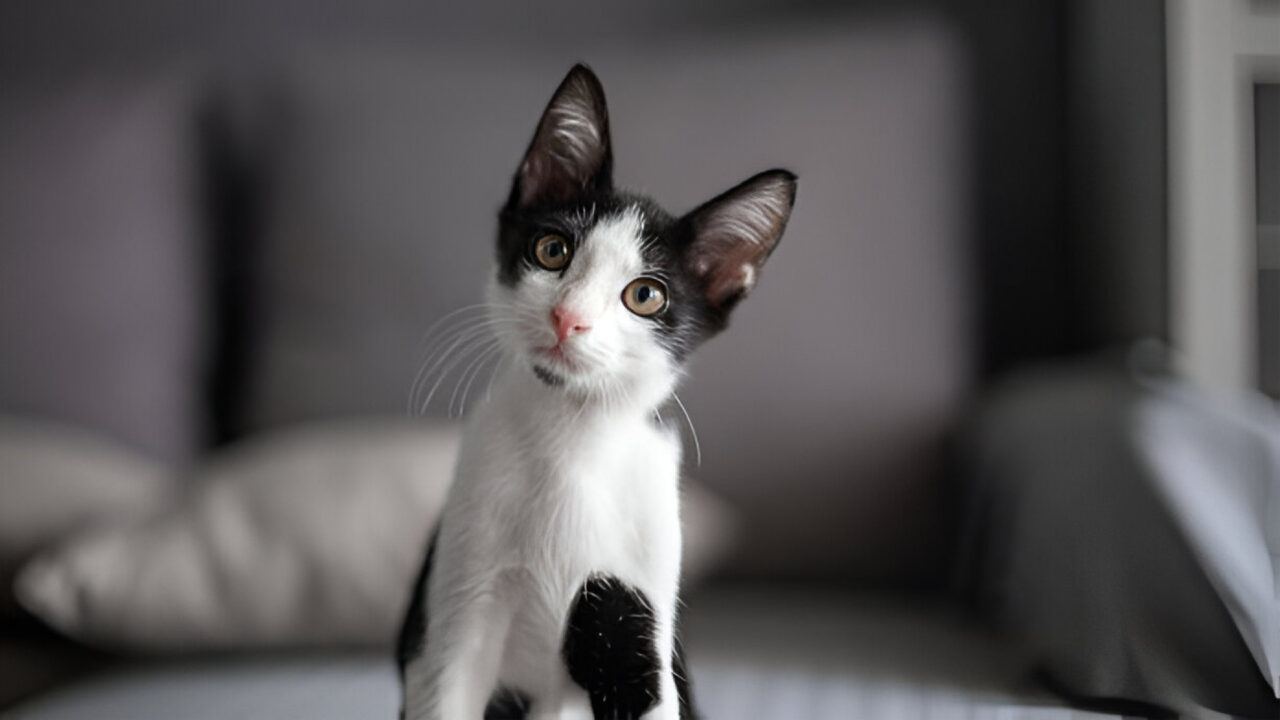
Attention-seeking behavior
If your feline pees on your lap, it could be a way for them to tell you something. They might do this to get attention.
Desire for interaction
Cats have needs similar to humans, like craving attention and companionship. If cats don’t get enough attention, they might act out, like urinating on your things to get noticed.
Your cat develops learned behavior.
Suppose your feline has previously received your response about urinating on your lap. In that case, it may have learned to do it to seek attention, even if the reaction is adverse, and now it does it.
Type of Attention your cat might be seeking
Physical Attraction
If your cat isn’t getting enough attention, it may act out to get you to interact with it. This shows your kitty wants more physical interaction, like cuddling or playing.
Mental stimulation
Cats need mental stimulation because they are intelligent. If they don’t get it, they can get bored and lonely, which can cause them to act in unsavory ways.
For example, they may seek attention by urinating in the wrong places, like on their owner’s lap. Even scolding or reacting to their behavior can give them the stimulation they want, making it a learned habit.
Factors Contributing to Attention Seeking
Change in Routine
If your daily routine has changed, like spending more time outside or picking up new hobbies like gardening, reading, or using your phone, your cat might feel ignored.
Decreased attention can frustrate your cat, who may act out, such as urinating on your lap, to get your attention back.
Introduction of new pets or people
Introducing a new family member, such as a pet, baby, or roommate, can make your cat feel threatened or overlooked. Cats may urinate on your lap to regain attention and assert their need for affection.
Jealousy
If your cat sees you giving affection to someone else or something else, like a phone or book, it might get jealous. Cats may want attention and could pee on your lap to show it. They want you to notice them and focus on them.
Insecurity
If your cat feels unsure about its place in the family, it might pee on your lap to seek your affection and reassurance. This behavior is probably because it wants emotional comfort and to be reminded that it is still loved and valued.
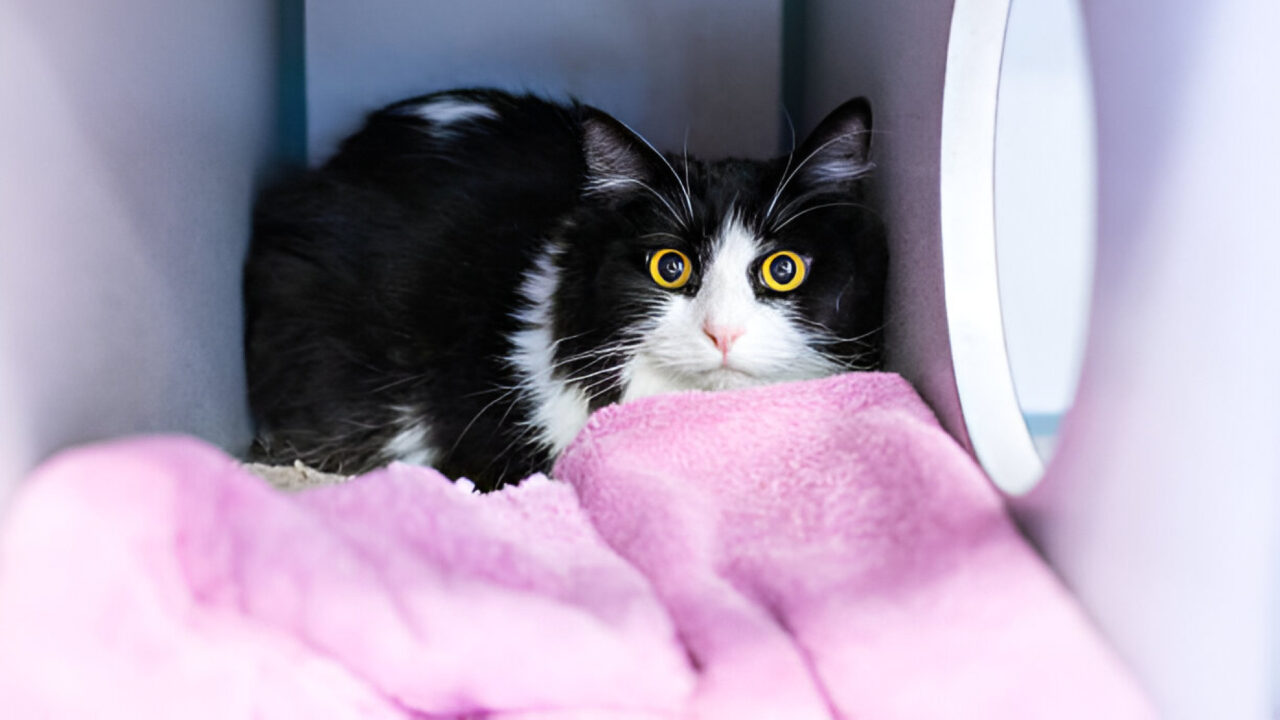
Your cat has several types of stress or anxiety.
Separation Anxiety
Cats can become very attached to their owners and feel anxious and stressed when left alone. Changes in their routine, such as moving to a new place or the departure of a familiar person or pet, can trigger this distress.
Signs of feline separation anxiety include loud meowing, destructive behavior, excessive attachment, and loss of litter box habits. Stress-related behavior may manifest as urinating in inappropriate locations as a way to deal with emotional distress.
The connection between anxiety and urination
A cat with separation anxiety may become very clingy and follow you everywhere. They might want to sit on your lap all the time. When they feel anxious about you leaving, they might urinate on your lap to express their distress.
When you’re not there, the cat may feel insecure. When you return, their anxiety may peak, causing them to urinate on your lap as a way to cope with their intense emotions.
Fear or Anxiety from past Punishment
Impact of Punishment on Cats
Cats that have been punished may become fearful of certain things, leading to anxiety and inappropriate behaviors like urinating. If your cat has been punished a lot, it may become nervous around you and urinate on your things or you.
Punishing a cat can harm the bond with its owner, leading to fear and behavioral problems. For example, a cat might urinate on its owner’s lap out of fear or to seek comfort in a stressful environment.
Behavioral Responses to Past Punishment
When a cat is disciplined, it might become very affectionate or needy to avoid more punishment. This excessive neediness can lead to the cat seeking more time on your lap and possibly urinating when anxious or scared.
Cats can develop learned helplessness, which makes them feel powerless and anxious. This can make them stop trying to avoid unpleasant situations, leading to behaviors like urinating in the house. This can happen if the cat has been mistreated.
Your cat has environmental stress.
Cats are creatures of habit and do well in predictable environments. When their surroundings change a lot, it can make them anxious. This anxiety can cause them to behave differently, like peeing outside their litter box.
Environmental stress can cause physical and emotional reactions in cats, making them more likely to have health problems like urinary tract infections. Stress can also cause cats to lose control of their bladders, causing them to urinate where they shouldn’t, like on their owner’s clothes.
Specific Environmental Stressors
(a)Introduction of New Pets
Introducing a new pet to a home can make a cat anxious and territorial. This might lead to urine marking as the cat tries to assert its territory and bond with its caregiver.
(b)Changes in Household Dynamics
Changes in your home, like a guest staying too long or more people moving in, can upset your cat and make it feel unsafe. This could cause your cat to show signs of stress, like marking you with urine.
(c)Noise and Disruptions
Cats can get scared by loud noises like construction, thunderstorms, fireworks, or even household appliances. When they feel overwhelmed, they may sit on your lap. However, due to their anxiety, they might end up urinating as a response to stress.
(d)Changes in Routine
Cats are sensitive to their daily routines. Any changes in their feeding times, play sessions, or daily routine can cause them stress. If these changes are significant, your cat may urinate on your lap in response to the unpredictability.

Possibility of new pets in your home
If your cat urinates on your lap, it may indicate that your pet is feeling uneasy or overwhelmed, possibly due to the recent addition of a new animal to your household.
Marking territory to establish Dominance
Cats defend their territory and mark it with scent to show ownership and control. Bringing a new pet can make cats feel vulnerable and like their territory is being invaded. Your cat may urinate on your lap to mark its territory and show its connection to you when it feels challenged.
Competition for Attention
When you bring a new pet home, your cat may become jealous and try to get your attention. It might start urinating on your lap to show that it feels neglected or anxious about being replaced by the new pet.
Fear of the New Pet
When you bring a new pet to your home, your cat may feel uneasy and worried. This could make it want to be close to you and seek comfort from you. But this anxiety can also cause your cat to lose control and have accidents, like urinating on your lap, as it tries to deal with its feelings.
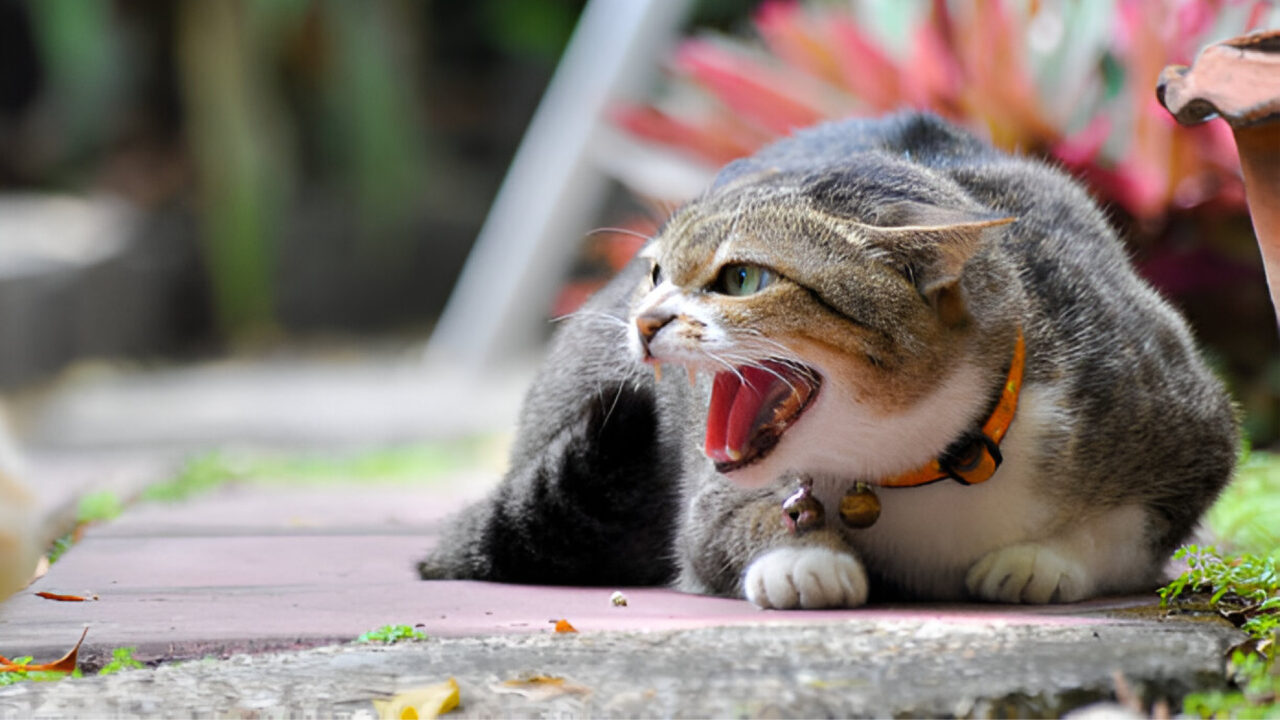
Your cat has an injury or pain.
Physical discomfort or pain can be a valid reason for your cat to urinate on your lap.
Physical Discomfort and Lack of Mobility
Suppose your cat is in pain or discomfort. In that case, it may have trouble getting to its litter box because of physical limitations. Conditions like arthritis, leg or spine injuries, or mobility problems can make it hard for the cat to reach the litter box easily. As a result, it may urinate in the wrong places, like on your lap, because it can’t get to the litter box quickly.
Signs Your Cat Might Be in Pain
Changes in Posture
Cats in pain may adopt unusual positions, such as hunching or favoring certain limbs. They may also avoid jumping or climbing and prefer to rest in low, comfortable places, like your lap.
Vocalization and Behavior Changes
A cat in pain may make more sounds than usual, like meowing, crying, or growling. It may also show signs of aggression or isolation, such as hiding more often or being less energetic.
Grooming Changes
Cats that groom too much or suddenly stop grooming might be in pain. If you see your cat licking or biting a specific area a lot, it could mean it’s hurt or uncomfortable.
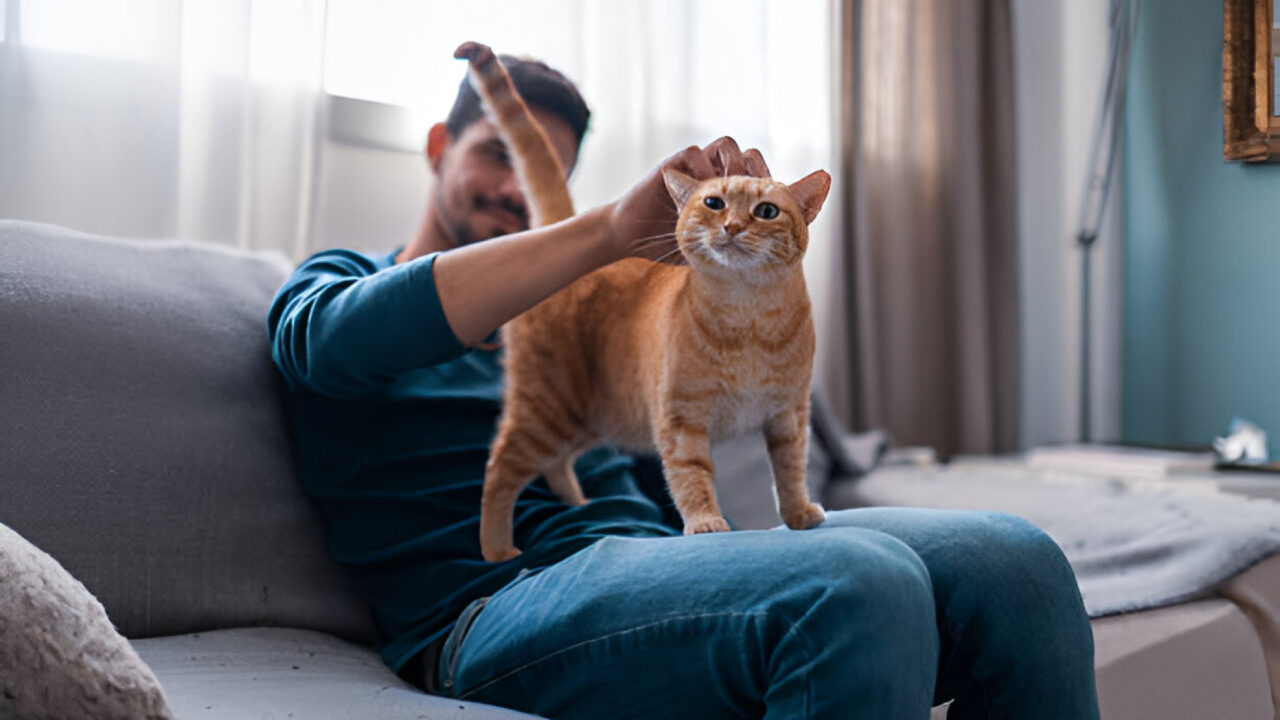
Territorial Marking
Cats mark their territory by depositing their scent, usually through urination. This behavior helps them define their boundaries and show other animals they own a specific territory or object. Cats use scent marking to feel in control of their surroundings, especially in households with multiple cats or when new pets are introduced.
Way of Marking
Cats have different ways to show that an area belongs to them, like headbutting, scratching, and leaving their scent through urine. Suppose a cat chooses to urinate outside the litter box, especially in places unique to them. In that case, it’s their way of marking their territory.
Reasons for Territorial Marking on Your Lap
- New animals or people
- Changes in Household Dynamics
- Existing Tension with Other Pets
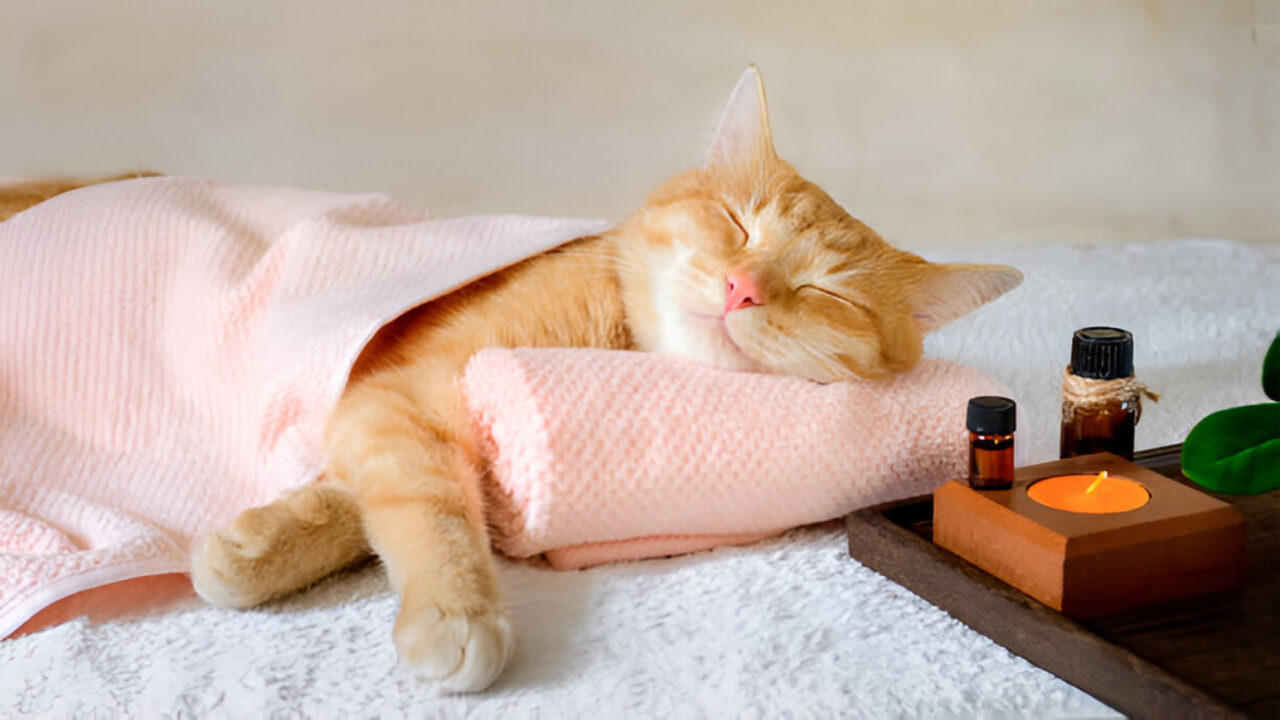
Medical Issues
Bladder Tumor
A bladder tumor can block or compress the bladder, making it harder for your cat to control urination. As the tumor grows, it can reduce the bladder’s space, causing your cat to urinate more often or feel sudden urges to urinate.
Bladder tumors in cats can be painful and uncomfortable, making it hard for them to pee normally. This can lead them to avoid using the litter box and instead seek comfort on your lap. Because of the pain, they may accidentally urinate on you.
Kidney Disease or Diabetes
(a)Kidney Disease
Kidney disease can cause the kidneys to have difficulty concentrating urine, making your cat pee a lot of diluted urine. This can make your cat need to pee more often, even when their bladder is incomplete, which might lead to accidents.
(b)Diabetes
Diabetic cats can have high blood glucose levels, which can also be found in their urine. The glucose in the urine attracts more water to the bladder, leading to increased urine production. Consequently, your cat may need to urinate more frequently and have accidents on your lap.
Bladder Stones or Crystals
Bladder stones are solid masses made of minerals that develop in the bladder. Depending on the minerals present, bladder stones can differ in size and composition.
Bladder crystals are tiny, sand-like mineral particles that can form in urine. If left untreated, they can aggregate and form larger stones.
Bladder stones in cats can cause discomfort and inflammation, leading to frequent and urgent urination, a condition known as pollakiuria.
Age-related Cognitive Dysfunction
Cats with cognitive decline may get lost in their usual space, like not finding the litter box and having accidents in unfamiliar places, such as their owner’s lap.
Arthritis
Arthritis in your cat can make it hard for them to climb stairs or navigate obstacles. This can lead to them preferring to stay in a more comfortable place, like your lap, and might cause problems with inappropriate urination.
Your Cat Has Urinary Tract Infection (UTI)
Urinary tract infections can cause discomfort and pain for your cat when it urinates. If using the litter box becomes difficult, your cat may look for other places to relieve itself. For example, if your cat can’t reach the litter box quickly, it may end up urinating in unwanted places.
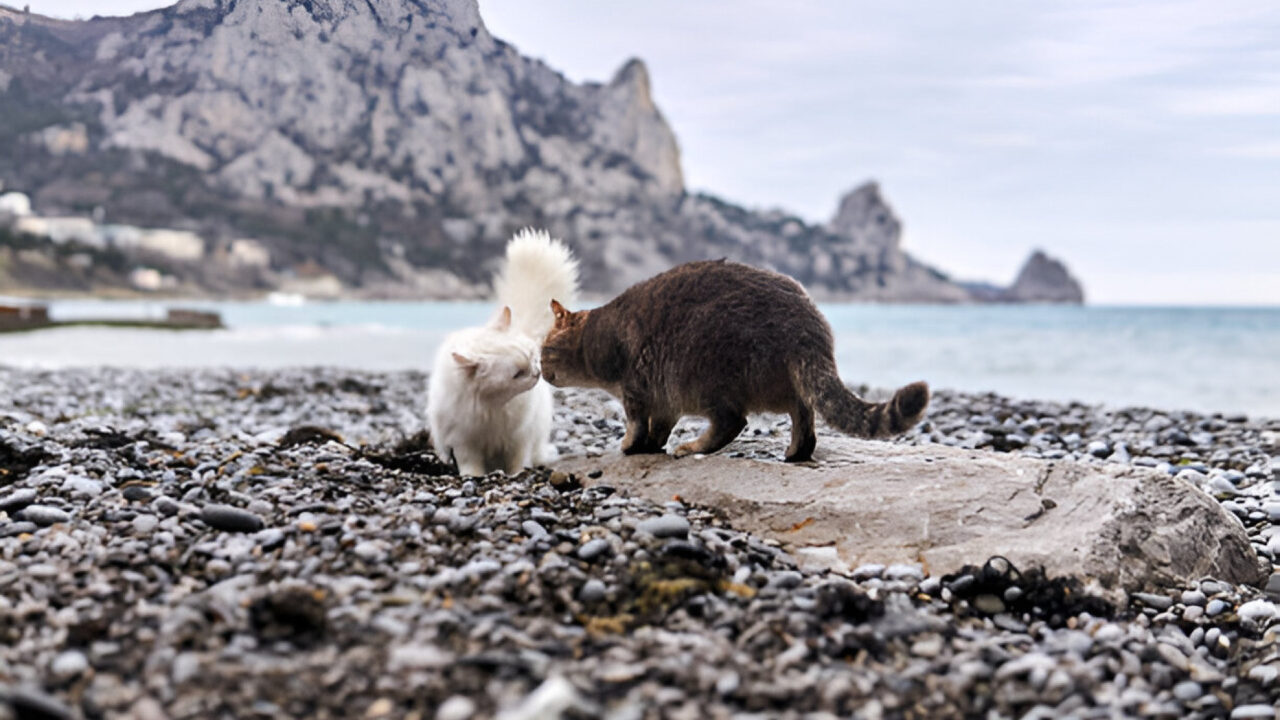
Mating Behavior
Your cat’s mating behavior may lead to it urinating on your lap. However, this is less common than other reasons, such as health problems or marking territory.
Hormonal Influences
When cats reach sexual maturity, their hormones make them exhibit mating behaviors. For example, an unneutered male cat (tomcat) might urinate to mark its territory and declare its availability to females.
Fluctuations in hormone levels can cause cats to urinate more frequently and urgently to communicate their reproductive status. However, if they are being held or sitting on someone’s lap, they might accidentally urinate, leading to an undesired incident.
Behavioral Frustration because of Unmet Mating
Unspayed cats may become sexually frustrated when they are unable to mate. This can lead to changes in their behavior, such as excessive vocalization, restlessness, and urinating in inappropriate locations. Suppose your cat is feeling frustrated and often sits on your lap. In that case, they may urinate there as a result of this emotional distress.
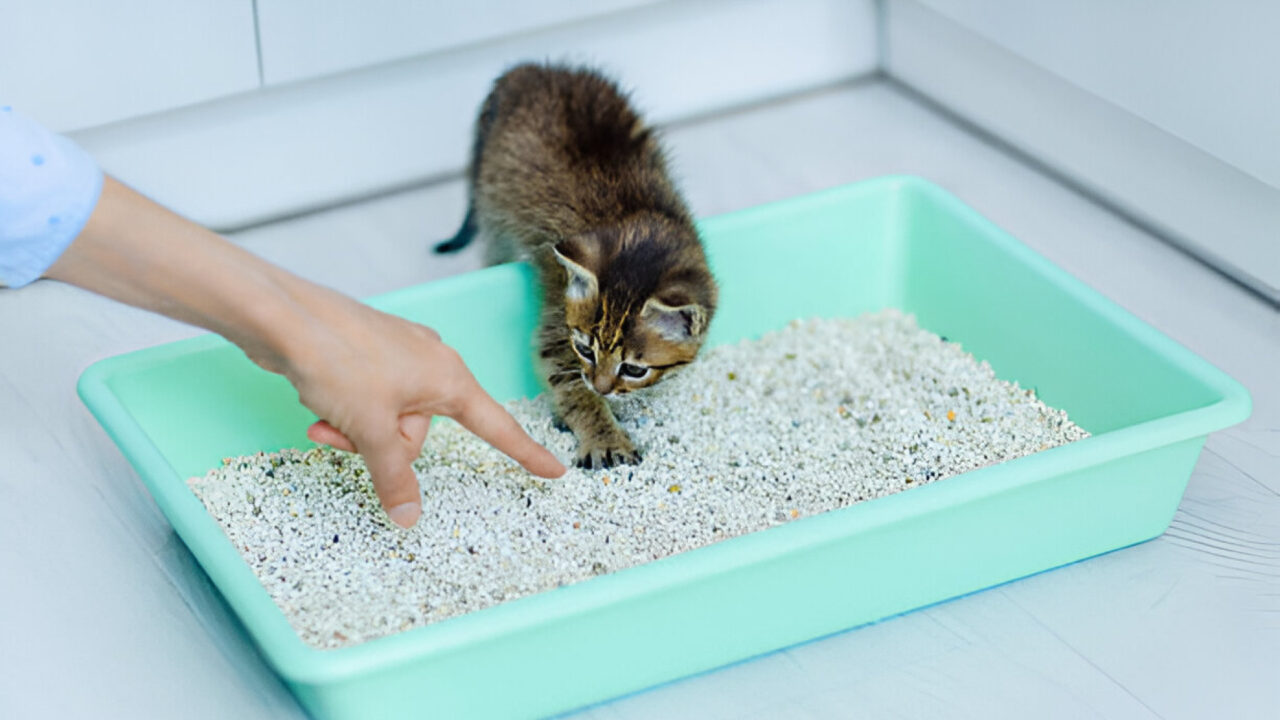
Litter Box-Related Issues
Inconsistent Litter Box Training
Establishing and sticking to a routine is essential to helping your cat understand where to urinate. This means keeping a consistent schedule for feeding, playtime, and bathroom breaks. Doing this can help your cat recognize that the litter box is the designated area for urination.
Consistency is critical here – reward or acknowledge your cat whenever they use the litter box, as this will encourage them to continue using it. On the other hand, if your training is consistent, your cat may need clarification and guidance on where to go.
Causes of Inconsistent Training
(a)Litter Box Location
Moving the litter box to a new spot too often can confuse your cat and cause accidents in unexpected places.
(b)Litter Type
Frequent litter changes can affect cats, who have a preference for particular textures and scents. If the litter is changed too often, cats may get confused and not use the litter box. They may start looking for other places, like your lap, to do their business.
(c)Inconsistent Rewards
Remember to praise and reward your cat when it uses the litter box correctly. This will help avoid confusion about expected behavior. If your cat doesn’t receive consistent encouragement, it may not use the litter box and have accidents elsewhere.
Your cat’s litter box may be Pithy.
Cats are spotless animals, especially when it comes to their litter box. If the litter box is clean and smells terrible, cats will refrain from using it. They have a strong sense of smell and can easily detect unpleasant odors. Cleaning the litter box regularly is essential to prevent your cat from being discouraged.
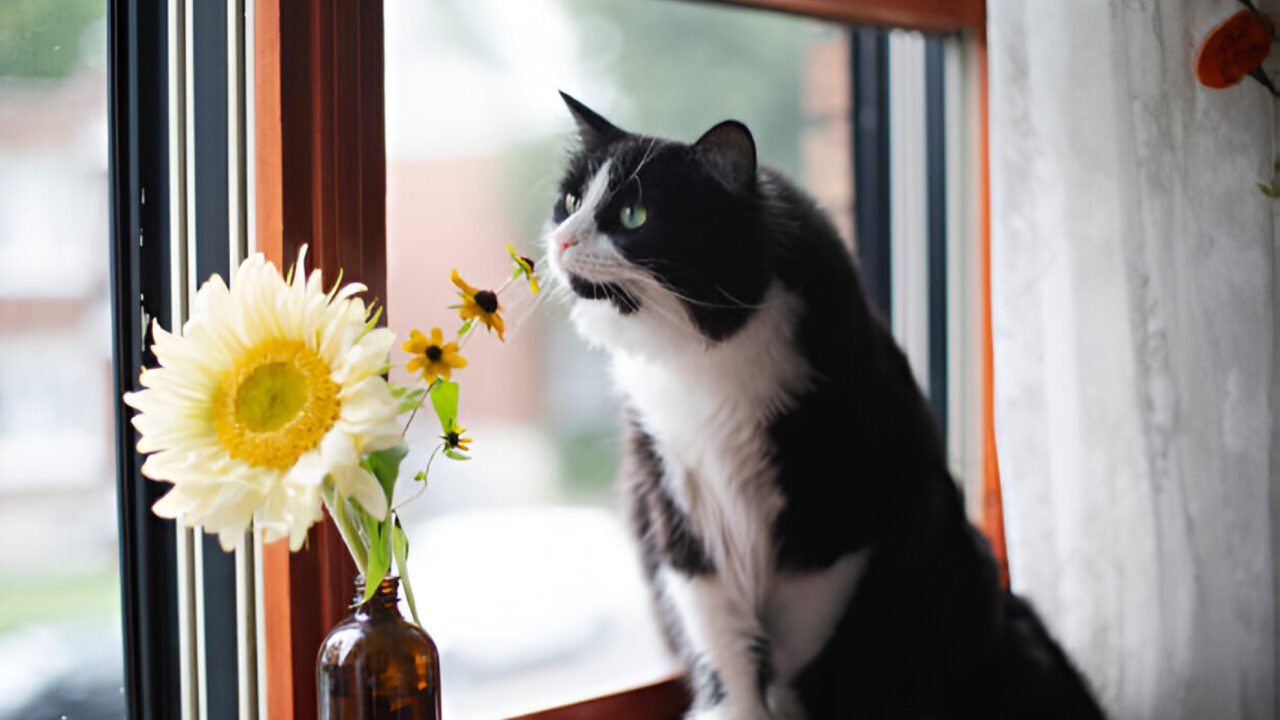
Scent-related issues cause inappropriate urination.
Changing your fragrance slightly can cause your cat to pee on your lap. Cats have a keen sense of smell and create strong bonds with their owners.
Change in your Scent
Cats have a better sense of smell than humans. They use it to navigate, find other animals, and recognize their owners. Their sense of smell helps them bond with people and other pets. They associate certain smells with feeling safe and loved, so any sudden change in these familiar smells can upset them and cause accidental urination.
How Change in Your Scent Can Affect Your Cat
Introducing new scents or personal care products can confuse or alarm your cat because they are used to your familiar smell. Interacting with other animals can leave their scent on you, causing your cat to react by marking you with their urine. Being in different places can also bring back unfamiliar odors, unsettling your cat.
Dislike of certain scents
Cats rely heavily on their sense of smell to communicate. They use pheromones to mark their territory and recognize familiar things. If they encounter a smell they don’t like, it can make them feel unsafe and uncomfortable. This can make them anxious and lead to changes in their behavior, like going to the bathroom outside the litter box.
How dislike of certain scents can lead to inappropriate urination?
When your cat smells something it doesn’t like, especially in its territory, like your lap, it may try to mark its territory by peeing there. Cats may also pee on things or people with a smell they don’t like to cover with their scent. This happens more when the smell is on something familiar and comforting, like your lap.
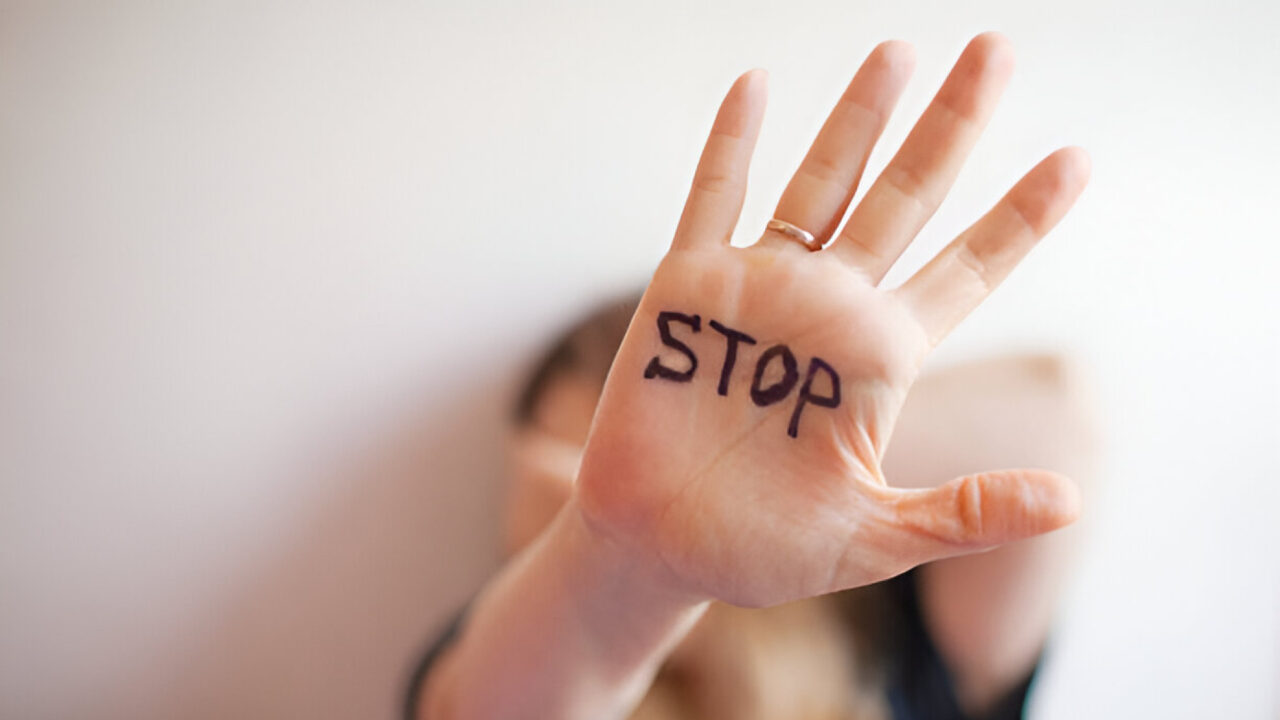
How to Stop my cat from peeing on my lap
Rule Out Medical Issues
Schedule a thorough check-up with a veterinarian to rule out urinary tract infections, bladder stones, kidney problems, or any potential underlying health conditions that might trigger inappropriate urination.
Address Litter Box Concerns
(a)Ensure Cleanliness: Remove waste from the litter box daily and give it a deep clean at least weekly. Cats are susceptible to hygiene and can be demanding about their bathroom area.
(b)Check Litter Preferences: Try out various litter options, such as clumping, non-clumping, fragrant, and fragrance-free, to determine which one your cat likes best.
(c)Optimal Placement: For optimal use, position the litter box in a peaceful spot separate from where food and water are placed and not in areas with a lot of activity. Cats like to have privacy while using their litter box.
(d)Multiple Boxes: To prevent conflicts or overcrowding, ensure you have a sufficient number of litter boxes for each cat, plus an additional one.
Reduce Stress and Anxiety
(a)Create a Calm Environment: Create a daily schedule for your cat with fixed meals, play, and socializing times. Introduce changes slowly to avoid disturbing your cat, like rearranging furniture or adding new pets.
(b)Use Pheromone Diffusers: Feliway and similar products release calming pheromones to help cats feel secure and relaxed, creating a peaceful environment.
(c)Safe Spaces: Create a calm and private space for your cat to relax when stressed or overwhelmed. This can be a comfortable and cozy bed in a quiet area or a high spot where it feels safe and peaceful.
Give Positive Reinforcement
Reward your cat with treats, praise, or affection when they use the litter box. This will teach them that using the litter box is a good thing. Giving rewards consistently will strengthen the link between using the litter box and positive experiences.
Increase Mental and Physical Stimulation
Play with your cat daily using feather wands, laser pointers, or interactive toys to help them release extra energy and reduce anxiety. Also, introduce scratching posts, puzzle feeders, and climbing to keep your cat mentally and physically active.
Avoid Punishment
Do not scold or punish your cat if it has an accident on your lap. This can make the situation worse and cause more stress. If you see it happening, calmly and softly guide your cat to the litter box without reacting harshly, as this can worsen the behavior.
Use Deterrents Wisely
Some scents, like citrus, can prevent cats from soiling clothes or bedding, which can help avoid accidents in the future. If your cat is bothered by a specific smell on you, like from another animal, try changing your soap, perfume, or laundry detergent to see if it reduces the behavior.
Ensure Proper Hydration and Diet
Make sure your cat has clean water available at all times. You could buy a cat water fountain to encourage them to drink more, which can help prevent urinary problems. Also, give them a balanced diet with all the necessary nutrients to support their urinary health, especially if they’ve had issues in the past.
Provide Safe and Cleaning Bedding
Give your cat a unique bed or blanket that is easy to clean. If they start urinating on it, remove it. Clean any soiled bedding with enzymatic cleaners to eliminate the smell and stop your cat from repeating the behavior.
Address Territorial Issues
Introduce your cat slowly to other pets and keep an eye on them to avoid problems. Giving each pet its own space for eating, using the bathroom, and resting can also help reduce conflicts.
Change or Rotate the Environment
To stop your cat from peeing in the wrong places, give them new toys, scratching posts, or hiding spots. Change the toys and play areas often to keep them entertained and reduce stress.
Consult Behaviorist
If you’re still having problems with your cat, it’s best to get help from a feline behavior specialist. They can provide personalized advice and training methods for your cat’s specific behavior issues.
Conclusion
Ultimately, when your cat urinates on you, it may be perplexing or infuriating. Still, it’s often a sign of an underlying issue that requires attention. This behavior can be a cry for help related to a medical problem, anxiety, or a desire for affection. By investigating and addressing the root cause, you can resolve the issue and, more importantly, nurture a deeper connection with your cat, providing them comfort, security, and devotion.
Refrences:
If you encounter any problems, feel free to reach out to me by clicking the link below.

